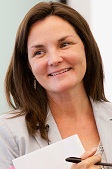The Other Side of Poverty in Schools Wednesday, September 28, 2016 | 9:00 a.m. - 3:30 p.m.
Education Sciences Room 325
In this exciting, stimulating, and intensive one-day workshop, teachers, administrators,counselors, and teacher educators will:
- Learn about the five principles for change to better meet the needs of working-class and poor students
- Develop research-based teaching practices sensitive to working-class and poor children and families
- Reflect on formative assessment of working-class and poor students across the curriculum
- Take away powerful classroom ideas for incorporating social class-related content
- Get ideas for establishing positive relationships with working-class and poor families
- Earn 5 continuing education credits
REGISTER: https://osopsept282016.eventbrite.com
Coffee and breakfast baked goods included in registration fee.
CLASSroom Project Co-Directors
|
|
|
 |
|
CLASSroom Project Co-Facilitators
This workshop is led by Dr. Mark Vagle and project associates Tracy M. Leitl and Kelly Gast.
Tracy M. Leitl is a phD student in the department of Curriculum and Instruction, Elementary Education, at the University of Minnesota. Prior to pursuing her phD at the University of Minnesota, Tracy taught kindergarten, second and third grade in New York City. Her teaching and working experiences in New York City led her to question broader socio political and economic structures and hierarchies' impact on our educational landscape and the lived experiences of students, parents, and educators. Tracy aspires to provide and foment in aspiring teachers the knowledge, pedagogical tools, mindful reflective dispositions, and experiences they will need to be skilled, committed, and confident life-long learners and teachers. She wishes to contribute to the field of education in a way that supports and inspires others to become invested and proactive agents in supporting all children to live in a society full of meaningful opportunity. Her work at the University of Minnesota includes teaching and leading pre-service elementary education teachers. She is an associate member of The CLASSroom Project, which is dedicated to examining the effects of social class in educational contexts.
Kelly Gast is a doctoral student in Elementary Education in the Department of Curriculum and Instruction at the University of Minnesota. She is a former ESL teacher who has worked with students and teachers in the United States and abroad. Her work with the university has included teaching and mentoring pre-service teachers as they develop a reflexive practice, supporting programs for alternative pathways towards teaching licensure, and supporting the CLASSroom Project as a project associate. Her research interests include the role of contemplative practices in teacher identity formation towards equity-mindedness.
